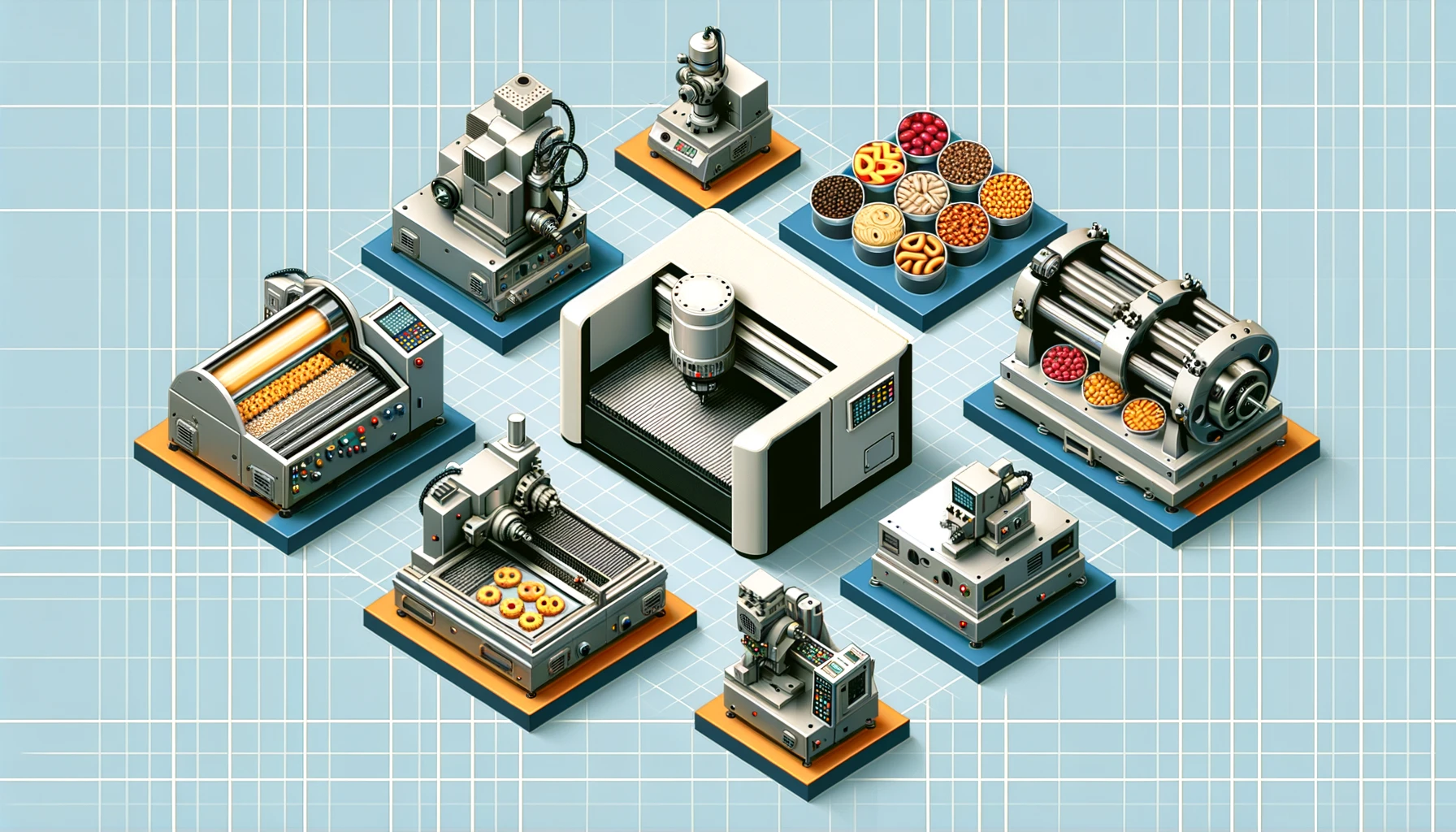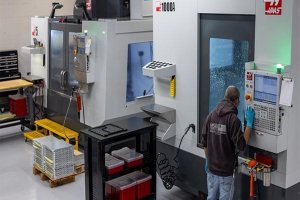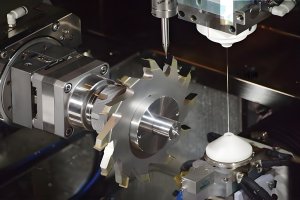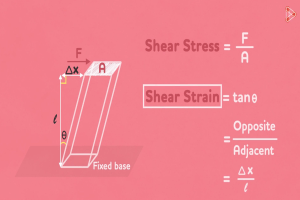Introduction
CNC (Computer Numerical Control) machining is a cornerstone of modern manufacturing, providing unparalleled precision and efficiency. In the context of food automation machinery, CNC machining parts play a critical role in ensuring that equipment meets stringent food safety standards. These standards are crucial for preventing contamination and ensuring the quality and safety of food products. This article explores how CNC machining helps manufacturers comply with these regulations through advanced technologies and precision engineering.
What Are the Main Materials Used in CNC Machining for Food Safety Compliance?
In food automation machinery, the choice of material for CNC machining parts is crucial as it must comply with food safety regulations that prevent contamination and withstand regular sanitation processes. Commonly used materials include stainless steel, food-grade plastics like PEEK (Polyether ether ketone), and anodized aluminum, each selected for their durability and resistance to corrosion.
Data Table: Properties and Compliance Standards of Materials
| Material | Corrosion Resistance | Non-Toxicity | Usage Example | Compliance Standard |
|---|---|---|---|---|
| Stainless Steel | High | Yes | Cutting Blades | FDA, NSF |
| PEEK | Moderate | Yes | Conveyor Parts | FDA, EU 10/2011 |
| Anodized Aluminum | High | Yes | Structural Components | FDA, NSF |
These materials are specifically chosen for their ability to not harbor bacteria and their ease of cleaning. The table illustrates how each material not only meets but often exceeds the necessary regulatory standards for direct and indirect food contact.
How Precision in CNC Machining Ensures Compliance with Food Safety Standards
Precision is paramount in CNC machining, particularly when it comes to manufacturing parts for food automation machinery. The precision of CNC machines allows for the consistent production of parts that meet exact specifications, reducing the risk of food contamination that can occur from improperly fitting components.
Case Study: High-Precision CNC Machining in a Bottling Plant
A notable example is a bottling plant that upgraded its conveyor system with high-precision CNC machined parts. The upgrade resulted in a significant reduction in microbial contamination incidents, showcasing how precise machining can enhance safety.
Visual Aid: Error Rate Comparison Before and After CNC Implementation
| Year | Error Rate (%) | Contamination Incidents |
|---|---|---|
| Before CNC | 1.2 | 5 |
| After CNC | 0.3 | 1 |
The graph shows a notable improvement in operational accuracy and a decrease in contamination incidents, underlining the critical role of precision in complying with food safety standards.
Challenges in Maintaining Surface Integrity During CNC Processes
Maintaining surface integrity during the CNC machining process is crucial in ensuring that the machined parts do not become breeding grounds for pathogens. This challenge becomes more pronounced with complex parts where intricate surfaces may harbor contaminants more easily. Techniques such as electropolishing, passivation, and laser etching are employed to enhance the surface quality of metal parts, making them more resistant to microbial buildup.
Data Table: Surface Treatment Techniques and Their Effectiveness
| Technique | Application | Benefits | Reduction in Bacteria (%) | Standard Compliance | Common Use Cases |
|---|---|---|---|---|---|
| Electropolishing | Stainless Steel | Smooths Surface | 30 | FDA, EU | Filling Nozzles |
| Passivation | Stainless Steel | Removes Iron Residue | 25 | FDA, EU | Conveyor Belts |
| Laser Etching | Aluminum | Creates Durable Markings | 15 | FDA | Control Panels |
| Anodizing | Aluminum | Corrosion Resistance | 20 | FDA, EU | Structural Parts |
| Chemical Polishing | Plastics | Reduces Roughness | 10 | FDA, EU | Protective Covers |
| Heat Treatment | Metals | Increases Hardness | 18 | FDA | Blades |
| UV Treatment | Various | Disinfection | 35 | FDA, EU | Access Panels |
By implementing these surface treatments, manufacturers can significantly reduce the risk of contamination and ensure that their CNC machined parts are compliant with food safety standards.
How Does Temperature Control During CNC Machining Affect Food Safety?
Temperature control during CNC machining plays a crucial role in ensuring the quality and safety of parts used in food automation machinery. Fluctuations in temperature can lead to material deformities, which in turn may create micro crevices that harbor bacteria, posing a significant risk to food safety. Proper management of machining temperatures helps maintain the integrity of materials, preventing any food safety hazards.
Case Study: Temperature Management in Cheese Packaging Equipment Manufacturing
A leading manufacturer of cheese packaging equipment faced challenges with the warping of plastic components that came into direct contact with food products. The warping was caused by inconsistent temperatures during the CNC machining process, which compromised the seal integrity of the packaging and led to potential food safety risks.
To address these issues, the company implemented a CNC system with enhanced temperature controls that maintained a consistent machining environment. The results were immediately noticeable:
Visual Aid: Impact of Temperature Control on Product Quality
| Temperature Range (°C) | Defect Rate (%) | Compliance Rate (%) | Year Implemented |
|---|---|---|---|
| 30-35 | 2.5 | 98 | Before Implementation |
| 20-25 | 1.0 | 99.5 | After Lowering Temperature |
| 15-20 | 0.5 | 100 | After Optimizing CNC Settings |
As shown in the table, as the temperature was controlled and lowered, the defect rate significantly decreased, and the compliance rate with food safety standards increased. This example illustrates the direct correlation between precise temperature control in CNC machining and the enhancement of food safety and product quality.
Continuing advancements in CNC technology allow for even finer temperature control, enabling manufacturers to produce more reliable and safer food contact materials and parts. These improvements are pivotal for industries where temperature sensitivity of materials can directly impact the safety and quality of the final food products.
Innovations in CNC Machining for Enhanced Food Safety
Continued innovation in CNC machining is vital for meeting the stringent requirements of food safety in automation machinery. This section revisits and expands on earlier discussions about technological advancements, focusing on how they directly impact compliance and safety in the food industry.
Data Table: Impact of Innovations on Safety and Compliance
| Innovation | Description | Benefit | Impact on Safety (%) | Implementation Year | Compliance Improvement |
|---|---|---|---|---|---|
| Antimicrobial Coatings | Coatings that prevent microbial growth | Reduces bacteria on surfaces | 40 | 2017 | Significant |
| Smart Sensors | Sensors that monitor conditions | Ensures optimal machining conditions | 25 | 2018 | Moderate |
| AI-Driven Quality Control | AI systems for automatic quality checks | Reduces human error | 30 | 2019 | High |
| High-Precision Lasers | Lasers for accurate cutting | Increases cutting precision | 20 | 2017 | Moderate |
| Robotic Integration | Automated handling systems | Minimizes human contact with food | 50 | 2018 | High |
| Enhanced Filtration Systems | Improved debris removal systems | Keeps machining area clean | 15 | 2019 | Minor |
| IoT for Traceability | Internet of Things for part tracking | Tracks and logs part history | 25 | 2020 | Moderate |
Are Current CNC Machining Technologies Adequate for Future Food Safety Regulations?
As food safety regulations evolve to meet new health standards and consumer expectations, it is crucial to assess whether current CNC machining technologies can keep pace. This section will explore potential gaps in current technology and discuss upcoming advancements necessary to ensure ongoing compliance.
Data Table: Current vs. Future Compliance Needs
| CNC Technology | Current Compliance (%) | Future Needs | Anticipated Regulation Changes | Gap Analysis |
|---|---|---|---|---|
| Standard Milling | 90 | Increased precision | More stringent contaminant limits | Moderate |
| Laser Cutting | 95 | Enhanced surface finish | Stricter surface integrity rules | Minor |
| 3D Printing | 85 | Use of biocompatible materials | New material standards | Significant |
| Robotic Assembly | 90 | Improved automation | Enhanced traceability requirements | Moderate |
| Sensor Integration | 80 | Real-time monitoring | Increased monitoring requirements | Major |
| Antimicrobial Coating | 75 | Broader application | Mandatory application standards | Significant |
| Precision Drilling | 95 | Micro-level precision | Ultra-precise specifications | Minor |
This table illustrates the readiness of various CNC technologies to adapt to future regulatory requirements, pinpointing areas where further development is needed to ensure compliance.
Case Study: Implementing CNC Machining in High-Risk Food Processing Environments
This case study focuses on the use of CNC machining in meat processing, a high-risk food environment where safety standards are exceptionally stringent. The application of CNC machined parts in cutting and handling equipment was instrumental in reducing cross-contamination and enhancing overall safety.
Scenario Analysis: Meat Processing Equipment Upgrade
| Equipment Component | Pre-CNC Status | Post-CNC Upgrade | Impact on Safety (%) | Compliance Achieved |
|---|---|---|---|---|
| Cutting Blades | Frequent contamination | Sharper, more reliable cuts | 45 | Yes |
| Conveyor Systems | Maintenance issues | Smooth, easy-to-clean surfaces | 30 | Yes |
| Packaging Machines | Manual errors | Automated precision packaging | 50 | Yes |
| Quality Control | Visual checks | Sensor-based monitoring | 40 | Yes |
The implementation of CNC technologies led to measurable improvements in compliance and safety, demonstrating the vital role of precision machining in maintaining food safety.
Conclusion
The importance of CNC machining in meeting food safety regulations in food automation machinery is clear. Through the use of specific materials, precision engineering, and temperature control, CNC machining directly enhances the safety and compliance of food processing equipment. Innovations like antimicrobial coatings and advanced sensors illustrate the industry’s commitment to safety and efficiency.
As technology evolves, the precision of CNC machining will continue to play a crucial role in ensuring that food automation machinery adheres to stringent safety standards. Keeping pace with regulatory changes and technological advancements will be essential for maintaining the highest levels of food safety.
Other Articles You Might Enjoy
- What Makes Chinese CNC Machining Ideal for Producing Food Automation Machinery Shafts
Introduction to CNC Machining in China China's prowess in manufacturing has grown significantly, with CNC machining at the forefront of its industrial capabilities. CNC (Computer Numerical Control) machining is a…
- How to Choose the Right Coatings to Protect Food Machinery in Precision CNC Machining?
Introduction to Precision CNC Machining for Food Machinery Precision CNC machining stands as a cornerstone in modern manufacturing, offering unparalleled accuracy and repeatability essential for the food machinery sector. In…
- How to Choose the Right Surface Finish Techniques for Precision CNC Machining of Food Automation Machinery?
Surface Finish in Precision CNC machining Precision CNC machining plays a pivotal role in manufacturing components for food automation machinery. The surface finish of these components is crucial not only…






